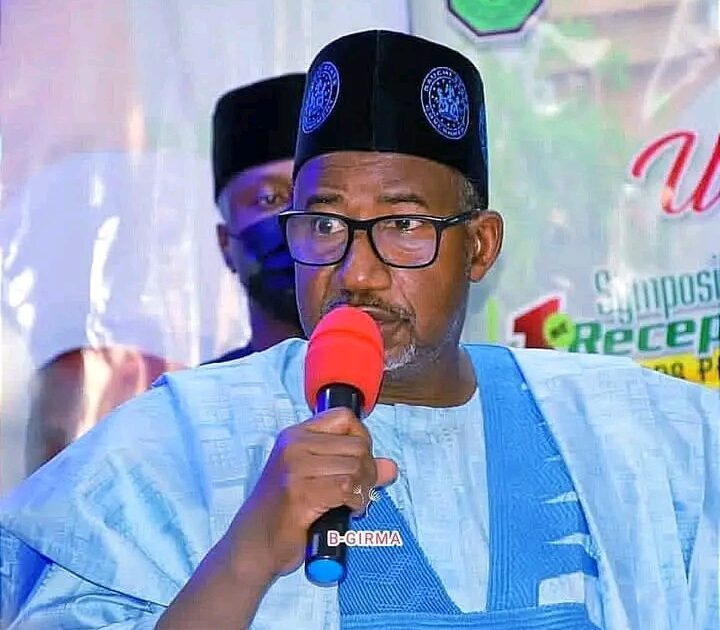Paragraph 1: Contextualizing the PDP’s Zoning Decision
The Peoples Democratic Party (PDP), Nigeria’s main opposition party, recently made a significant decision regarding its presidential ticket for the 2027 general elections. The party’s National Executive Committee (NEC) resolved to zone the ticket to the southern region of the country. This decision, announced during a meeting in Abuja, has sparked considerable discussion and debate within the political landscape. Governor Bala Mohammed of Bauchi State, a prominent figure within the PDP, has emerged as a vocal defender of the zoning arrangement. He characterized the decision as a strategic move aimed at fostering unity and stability within the party, and a crucial step in its efforts to reposition itself ahead of the 2027 elections.
Paragraph 2: Governor Mohammed’s Rationale for Supporting Zoning
Governor Mohammed, in an interview, articulated his reasons for supporting the zoning decision. He emphasized his intimate involvement in the process leading up to the resolution, highlighting his participation in the planning, strategizing, and execution of the zoning arrangement. He expressed his satisfaction with the outcome, underscoring its all-inclusive nature and its potential to bring about “sanity, understanding, and unity” within the PDP. This perspective positions the zoning decision as a product of careful deliberation and consensus-building within the party’s leadership. Furthermore, it suggests that the decision is not merely a political maneuver, but a genuine attempt to address internal divisions and strengthen the party’s overall cohesion.
Paragraph 3: The Broader Implications of the Zoning Decision
Governor Mohammed’s defense of the zoning policy goes beyond internal party dynamics. He frames the decision within a broader national context, urging Nigerians to prioritize collective interests and national development over individual political ambitions. He argues that politics should not be driven by self-serving motives, but rather by a commitment to the greater good. This appeal to national interest suggests that the zoning policy is not solely about power-sharing within the PDP, but also about fostering a sense of national unity and purpose. This broader perspective seeks to elevate the zoning debate beyond partisan politics and position it as a matter of national importance.
Paragraph 4: Sacrifice and National Progress
Governor Mohammed’s emphasis on “sacrifice” as a core principle in politics further reinforces his argument for the zoning arrangement. He posits that political actors must be willing to put aside personal ambitions for the sake of the collective good. This call for sacrifice implies that the zoning decision, while potentially disappointing to some individuals within the party, is ultimately necessary for the long-term health and success of the PDP. By emphasizing the importance of sacrifice, Governor Mohammed seeks to legitimize the zoning decision and rally support for it within the party and beyond. The implication is that individual aspirations should be subordinate to the overarching goal of national progress.
Paragraph 5: Unity Within the PDP’s Leadership
Beyond the philosophical arguments, Governor Mohammed also sought to project an image of unity and cohesion within the PDP’s leadership. He assured the public that the party’s governors, the National Working Committee (NWC), and the Board of Trustees (BOT) are united in their efforts to reposition the PDP as a stronger alternative to the ruling party. This assertion of unity is crucial for the party’s credibility and its ability to present itself as a viable option for voters in the upcoming elections. By emphasizing internal alignment, Governor Mohammed aims to dispel any perceptions of disunity or internal strife that might undermine the party’s electoral prospects.
Paragraph 6: The PDP’s Path Forward
The PDP’s zoning decision, and Governor Mohammed’s defense of it, represent a significant development in the Nigerian political landscape. The move signals the party’s intention to address internal divisions, prioritize national unity, and present itself as a cohesive and viable alternative to the ruling party. The success of this strategy, however, remains to be seen. The party will need to navigate the complexities of internal politics, manage potential dissent from those who may feel disadvantaged by the zoning arrangement, and effectively communicate its message to the Nigerian electorate. The ultimate test of the zoning decision’s effectiveness will be its impact on the PDP’s performance in the 2027 general elections. The party’s ability to translate its rhetoric of unity and national progress into tangible electoral gains will determine the long-term implications of this strategic move.














